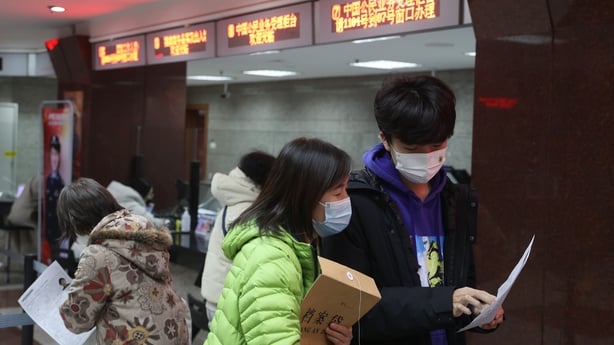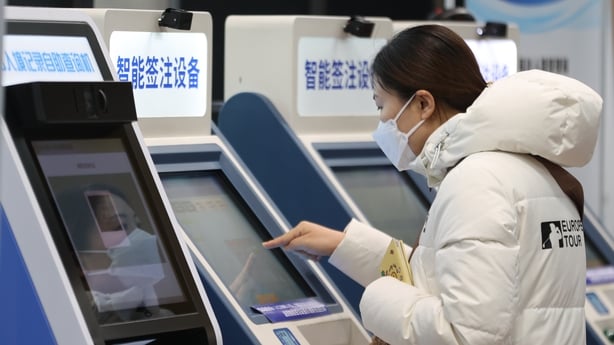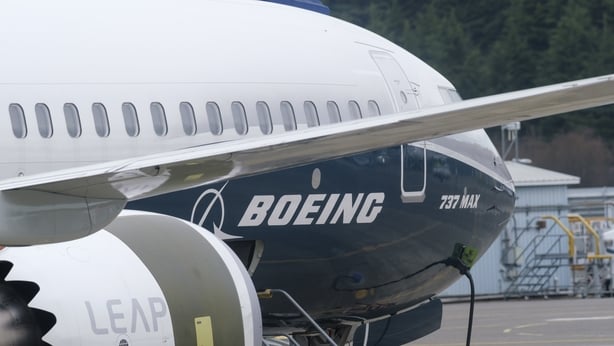The peak of China's Covid-19 wave is expected to last two to three months and will soon swell over the vast countryside where medical resources are relatively scarce, a top Chinese epidemiologist has said.
Infections are expected to surge in rural areas as hundreds of millions travel to their hometowns for the Lunar New Year holidays, which officially start from 21 January, known before the pandemic as the world's largest annual migration of people.
China last month abruptly abandoned the strict anti-virus regime of mass lockdowns that fuelled historic protests across the country in late November, and finally reopened its borders this past Sunday.
The abrupt dismantling of restrictions has unleashed the virus onto China's 1.4 billion people, more than a third of whom live in regions where infections are already past their peak, according to state media.
But the worst of the outbreak was not yet over, warned Zeng Guang, the former chief epidemiologist at the Chinese Centre for Disease Control and Prevention, according to a report published in local media outlet Caixin.
"Our priority focus has been on the large cities. It is time to focus on rural areas," Mr Zeng was quoted as saying.

He said a large number of people in the countryside, where medical facilities are relatively poor, are being left behind, including the elderly, the sick and the disabled.
Authorities have said they were making efforts to improve supplies of antivirals across the country. Merck & Co's Covid treatment molnupiravir is expected to be made available in China from today.
The World Health Organization this week also warned of the risks stemming from holiday travelling.
The UN agency said China was heavily under-reporting deaths from Covid, although it is now providing more information on its outbreak.
China's foreign ministry said the country's health officials have held five technical exchanges with the WHO over the past month and have been transparent.
Health authorities have been reporting five or fewer deaths a day over the past month, numbers which are inconsistent with the long queues seen at funeral homes and the body bags seen coming out of crowded hospitals.
Read more:
Latest Covid-19 stories
The country has not reported Covid fatalities data since Monday. Officials said in December they planned to issue monthly, rather than daily updates, going forward.
Although international health experts have predicted at least 1 million Covid-related deaths this year, China has reported just over 5,000 since the pandemic began, one of the lowest death rates in the world.
Concerns over data transparency were among the factors that prompted more than a dozen countries to demand pre-departure Covid tests from travellers arriving from China.
Beijing, which had shut its borders from the rest of the world for three years and still demands all visitors get tested before their trip, has said it strongly opposes such curbs, which it finds "discriminatory" and "unscientific."
Tensions escalated this week with South Korea and Japan, with China retaliating by suspending short-term visas for their nationals. The two countries also limit flights, test travellers from China on arrival, and quarantine the positive ones.

Japan's Chief Cabinet Secretary Hirokazu Matsuno said Tokyo will continue to ask China to be transparent about its outbreak, labelling Beijing's retaliation as one-sided, unrelated to Covid, and extremely "regrettable."
Meanwhile, a Boeing 737 MAX has made its first passenger flight in China in nearly four years this morning, marking a major milestone in the company's attempt to rebuild its business in the world's second-largest aviation market.
The China Southern Airlines Co Ltd domestic flight from Guangzhou to Zhengzhou departed at 12.45pm local time – 5.45am Irish time - using a MAX plane, according to flight tracking websiteFlightRadar24.
The Boeing model was grounded in March 2019 after fatal crashes in Indonesia and Ethiopia, but returned to service around the world starting in late 2020 after modifications to the aircraft and pilot training.
China is the last major market to resume flying the MAX amid ongoing trade tensions with the United States, and the return comes as domestic travel demand rebounds after it abandoned zero-COVID policies.
Foreign airlines began flying the MAX to China in October 2022, in a sign the first country to ground the model after the crashes was loosening its policies.

China's domestic aviation market had been depressed in 2022 because of sporadic lockdowns designed to quash Covid-19 but demand is rising now that Covid controls have been abandoned.
Parts of China have been returning to normal life since Covid-19 restrictions were stripped back.
In the bigger cities in particular, residents are increasingly on the move, pointing to a gradual recovery in consumption and economic activity this year. Still, traffic data and other indicators have not yet fully recovered to levels of just a few months ago.
Many economists remain apprehensive about the pace of revival following the faster-than-expected reopening. December trade data released today provided further reason for caution.
Both imports and exports shrank sharply in December as a torrent of infections weighed on domestic demand and a cooling world economy curbed factory orders. Imports underperformed exports throughout last year.
Data next week is expected to show China's economy grew just 2.8% in 2022 under the weight of repeated lockdowns, its second-slowest since 1976, the final year of Mao Zedong's decade-long Cultural Revolution that wrecked the economy, according to a Reuters poll.
Growth is then seen rebounding to 4.9% this year, still well below the trend of recent decades.

